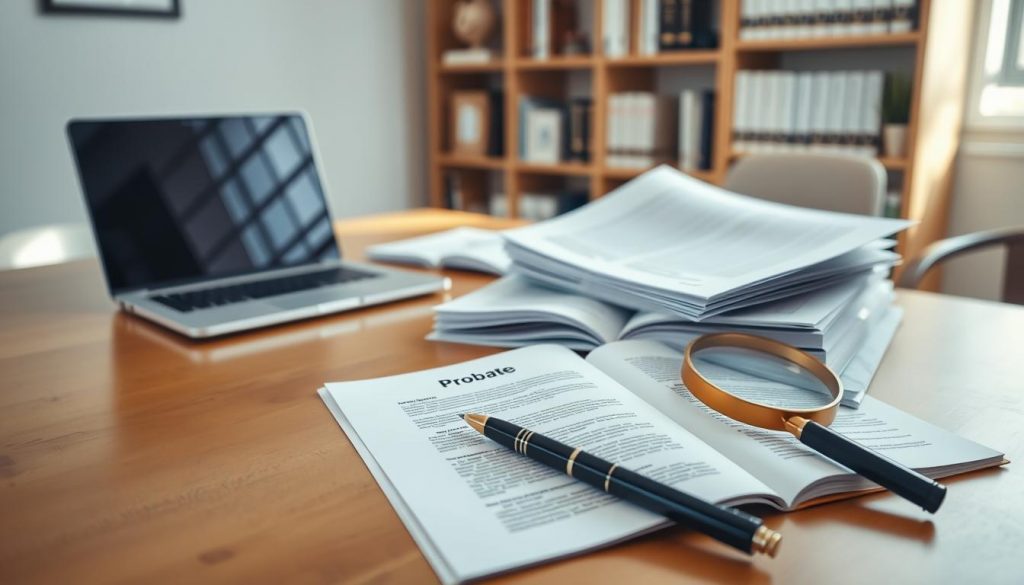Having a will is crucial for determining how your assets are distributed upon your passing, as highlighted in the latest episode of ‘The Martin Lewis Money Show’. Many people assume that having a will is only necessary for those with significant assets. However, this is not the case. A will ensures that your wishes are respected, and your assets are distributed according to your desires, rather than being dictated by intestacy laws.
Without a will, you risk leaving your loved ones with a complicated and potentially contentious situation. By creating a will, you can ensure that your estate is distributed in a way that reflects your values and priorities.
Key Takeaways
- Having a will ensures that your assets are distributed according to your wishes.
- Intestacy laws can lead to unintended consequences if you don’t have a will.
- A will is essential for estate planning, regardless of the size of your estate.
- Creating a will can help prevent disputes among your loved ones.
- A will allows you to make provisions for your family and friends.
Understanding the Importance of a Will
A will is more than just a legal document; it’s a way to ensure your wishes are respected after you’re gone. At its core, a will is a declaration of how you want your assets to be distributed, who should be the guardian of your minor children, and who will execute your estate according to your instructions.
What is a Will?
A will, or last will and testament, is a legally binding document that outlines your wishes regarding the distribution of your assets after your death. It allows you to appoint an executor who will manage your estate and ensure that your instructions are carried out. This document can also include provisions for the care of minor children, specifying who should be their guardian.
Having a will simplifies the process for your loved ones during a difficult time. It provides clarity and can help prevent disputes among family members by clearly stating your intentions.
Who Needs a Will?
Estate planning is not just for the wealthy; it’s for anyone with assets, dependents, or specific wishes regarding their estate. Whether you have children, own property, or have other assets you wish to distribute in a particular way, having a will is crucial. It ensures that your assets are distributed according to your wishes, rather than being decided by the state according to intestacy laws.
“A will is the cornerstone of estate planning, providing a clear direction for the distribution of one’s assets and the care of dependents.” –
Consider the following scenarios where having a will is particularly important:
- You have minor children and want to appoint a guardian.
- You own property or significant assets that you wish to distribute in a specific manner.
- You have dependents with special needs who require ongoing care.
Misconceptions About Wills
One common misconception is that wills are only necessary for individuals with substantial wealth. However, a will is essential for anyone who wants to have control over the distribution of their assets, regardless of their value. Another misconception is that creating a will is a complicated and costly process. In reality, while it’s advisable to seek professional help, the process can be straightforward, especially with the guidance of an experienced estate planning team.
| Misconception | Reality |
|---|---|
| Wills are only for the wealthy. | Anyone with assets or dependents benefits from having a will. |
| Creating a will is too complicated. | With professional guidance, the process can be straightforward. |
By understanding the importance of a will and dispelling common misconceptions, you can take the first step towards securing your family’s future and ensuring that your wishes are respected.
Assets Beyond Monetary Value
Our personal belongings are not just mere objects; they are keepers of memories, family heirlooms, and symbols of love. When planning our estate, it’s essential to consider these items, as they hold significant emotional value for our loved ones.
Personal Possessions and Their Significance
Personal possessions can range from family heirlooms passed down through generations to personal mementos that hold cherished memories. These items are often irreplaceable and can evoke strong emotions. For instance, a grandmother’s locket or a child’s favourite toy can be priceless to family members.
When distributing these possessions, it’s crucial to consider the emotional attachment associated with each item. By doing so, we can ensure that our loved ones receive the items that hold the most significance for them.

Emotional Value of Belongings
The emotional value of our belongings is subjective and varies greatly from person to person. What may seem insignificant to one person can hold immense sentimental value to another. For example, a piece of jewellery might remind someone of a special moment or person in their life.
To illustrate the significance of personal possessions, consider the following table, which highlights the difference between monetary and emotional value:
| Item | Monetary Value | Emotional Value |
|---|---|---|
| Family Heirloom Jewellery | £500 | Priceless family history |
| Childhood Photo Album | £20 | Irreplaceable memories |
| Grandmother’s Clock | £200 | Sentimental family significance |
By understanding the emotional value of our belongings, we can make informed decisions about their distribution, ensuring that they are passed to those who will cherish them.
Planning for Future Assets
As we look to the future, it’s essential to consider how our assets may change over time. Acquiring new assets, whether it’s property, investments, or other valuables, can significantly impact how our estate is distributed. Therefore, it’s crucial to incorporate these potential changes into our estate planning.
Acquiring Assets Over Time
Over the years, our financial situation and possessions can change dramatically. We may acquire new assets, such as:
- Real estate properties
- Investments in stocks or bonds
- Valuable personal items, like jewelry or art
- Business interests
These assets can add complexity to our estate, making it even more important to have a clear plan in place. By making a will, we can ensure that these assets are distributed according to our wishes, rather than being decided by intestacy laws.
Importance of Forward Planning
Forward planning is a critical aspect of estate planning. By considering how our assets may change in the future, we can create a more robust and flexible plan. This not only helps in ensuring that our wishes are respected but also in reducing the burden on our loved ones.
For more information on why having an estate plan is crucial, even with minimal assets, visit Trust & Will. This resource provides valuable insights into the importance of writing a will and planning for the future.
By taking a proactive approach to estate planning, we can enjoy peace of mind knowing that our affairs are in order. This includes regularly reviewing and updating our will to reflect any changes in our assets or personal circumstances.
Protecting Loved Ones
A will is more than just a legal document; it’s a way to safeguard your family’s well-being. By creating a will, you can ensure that your loved ones are protected and provided for according to your wishes.
Designating Guardians for Minor Children
One of the most critical aspects of a will is the ability to designate guardians for your minor children. This ensures that they are cared for by someone you trust in the event that you are no longer able to do so.
- Choose a Guardian: Select someone who shares your values and is willing to take on the responsibility.
- Consider Alternatives: Identify backup guardians in case your first choice is unable to serve.
- Discuss Your Wishes: Have open conversations with your chosen guardians about your expectations and wishes for your children.
Ensuring Family Members Are Provided For
A will allows you to make provisions for your family members, ensuring they are financially secure after you’re gone. This can include leaving specific gifts or bequests, as well as making arrangements for ongoing financial support.
| Provision Type | Description | Benefit |
|---|---|---|
| Specific Gifts | Leaving particular items or amounts to specific individuals. | Ensures that personal or significant items are passed on as desired. |
| Financial Support | Making arrangements for ongoing financial care. | Provides long-term security for dependents. |
| Trusts | Setting up trusts to manage and distribute assets. | Offers flexibility and control over how assets are used. |
By including these provisions in your will, you can have peace of mind knowing that your loved ones will be taken care of according to your wishes.
Protecting your loved ones through a well-crafted will is an act of love and responsibility. It ensures that your wishes are respected and your family is provided for, giving you and them peace of mind.
Avoiding Intestacy Laws
Having a will is essential to ensure that your assets are distributed as per your desires, rather than being governed by intestacy laws. When you don’t have a will, the distribution of your estate is left to the laws of your jurisdiction, which can lead to unintended consequences.

What Happens If You Don’t Have a Will?
If you pass away without a will, the intestacy laws of your jurisdiction will dictate how your assets are distributed. This means that the court will decide who inherits your property, and it may not align with your wishes. For instance, if you’re married with children, the laws may dictate that your spouse and children inherit your assets in certain proportions.
Key implications of not having a will include:
- Your assets may be distributed according to a predetermined formula, which might not reflect your personal wishes or the needs of your loved ones.
- The court will appoint an administrator to manage your estate, which can lead to additional costs and complexity.
- In the absence of clear instructions, family disputes may arise over the distribution of your assets.
The Consequences of Intestacy
The consequences of intestacy can be far-reaching and may result in significant financial and emotional strain on your loved ones. For example:
- The distribution of your assets may be delayed due to the complexity of the intestacy laws and the need for court intervention.
- Your estate may be subject to higher costs, including court fees and administrative expenses.
- The lack of clear instructions can lead to family conflicts and disputes over the distribution of your assets.
By having a legal will, you can avoid these consequences and ensure that your estate is distributed according to your wishes. It’s a crucial aspect of estate planning that provides peace of mind for you and your loved ones.
Simplifying the Probate Process
A well-crafted will is more than just a legal document; it’s a key to simplifying the probate process. When you have a valid will, you provide clear instructions on how your assets should be distributed, making it easier for your loved ones to navigate the complexities of probate.
Expediting Asset Distribution
Having a will can significantly expedite the probate process by providing a clear roadmap for asset distribution. Without a will, the process can become lengthy and complicated, causing unnecessary delays and stress for your family. By specifying your wishes in a will, you can help ensure that your assets are distributed according to your intentions, reducing the potential for disputes and misunderstandings.
Key benefits of having a will in the probate process include:
- Clear instructions for asset distribution
- Reduced likelihood of family disputes
- Faster processing times
- Greater control over your estate
Minimising Family Conflicts
A will can also play a crucial role in reducing family disputes during the probate process. By clearly outlining your wishes, you can help prevent misunderstandings and conflicts among your loved ones. As noted by a legal expert,
“A well-drafted will can act as a guide, helping to resolve potential issues before they arise.”
To illustrate the impact of having a will on the probate process, consider the following comparison:
| Aspect | With a Will | Without a Will |
|---|---|---|
| Asset Distribution | Clear instructions provided | Decided by intestacy laws |
| Probate Process | Faster and more straightforward | Lengthy and potentially complicated |
| Family Disputes | Reduced likelihood of conflicts | Higher risk of disputes |
As shown in the table, having a will can make a significant difference in the probate process, ensuring that your wishes are respected and your loved ones are protected.

In conclusion, a well-crafted will is essential for simplifying the probate process and reducing potential family disputes. By providing clear instructions and specifying your wishes, you can ensure a smoother experience for your loved ones during a difficult time.
The Role of Executors
Executors play a vital role in carrying out the instructions in your will, making their selection a significant decision. When you appoint an executor, you’re choosing someone you trust to manage your estate according to your wishes after you’re gone.
Who Can Be an Executor?
An executor can be a family member, a friend, or a professional. The key is to choose someone who is not only trustworthy but also capable of handling the responsibilities that come with managing an estate. It’s also possible to appoint more than one executor, which can be beneficial in sharing the responsibilities.
When selecting an executor, consider their:
- Ability to manage financial matters
- Willingness to take on the role
- Understanding of your wishes as outlined in your will
Responsibilities of an Executor
The responsibilities of an executor are varied and significant. They include:
| Responsibility | Description |
|---|---|
| Managing the Estate | Collecting in the assets, paying debts, and distributing the remaining assets according to the will. |
| Applying for Probate | If necessary, applying for probate to legally validate the will. |
| Communicating with Beneficiaries | Keeping beneficiaries informed about the progress of the estate administration. |
As HM Courts & Tribunals Service states, “The executor is responsible for carrying out the instructions in the will, and for ensuring that the estate is distributed according to the will.” This highlights the importance of choosing an executor who is diligent and trustworthy.
“The role of an executor is not just about following the instructions in a will; it’s about ensuring that the deceased person’s wishes are respected and carried out with care and integrity.”
Choosing the right executor is a crucial part of estate planning. It’s a decision that should be made with care, considering the significant responsibilities involved.
Tailoring Your Will to Personal Circumstances
Tailoring your will to your personal circumstances is crucial for ensuring your wishes are respected. Everyone’s situation is unique, and a will should reflect this uniqueness.
Customising Your Will for Unique Situations
Different life situations require different approaches to making a will. For instance, if you have minor children, you may want to designate a guardian in your will. If you have significant assets, you might consider setting up trusts to manage their distribution.
Consider the case of a family business owner. In their will, they might include provisions for the succession of the business, ensuring it remains in the family or is sold in a manner that benefits the estate.
- Specify how you want your assets distributed.
- Consider the needs of your dependents.
- Appoint an executor you trust.
Updating Your Will Over Time
As your circumstances change, so too should your will. Life events such as marriage, divorce, the birth of children, or significant changes in your financial situation are all reasons to review and potentially update your will.
Updating your will ensures that it remains relevant and effective in carrying out your wishes. For example, if you’ve acquired new assets since making your original will, you should update your will to include these.
Regular reviews of your will can help ensure that it continues to reflect your current situation and wishes, maintaining its legal will status and effectiveness.
By keeping your will up to date, you can have peace of mind knowing that your loved ones will be taken care of according to your wishes, highlighting the will importance of regular updates.
The Cost of Not Having a Will
Not having a will can lead to significant financial and emotional strain on family members. When you pass away without a will, the laws of intestacy dictate how your assets are distributed, which may not align with your wishes.
Financial Implications of Intestacy
The absence of a will can result in costly legal proceedings, potentially reducing the inheritance left for your loved ones. Asset distribution may be delayed, causing financial hardship for those dependent on your estate.
Emotional Toll on Loved Ones
Without a clear will, family members may experience increased stress and conflict over asset distribution. This emotional strain can be avoided by taking control of your estate planning, ensuring your wishes are respected, and providing clarity for your loved ones.
Understanding why you need a will, even if you have few assets, is crucial for protecting your family’s future. We can guide you through the process, ensuring your estate is managed according to your wishes, and providing peace of mind for you and your loved ones.


